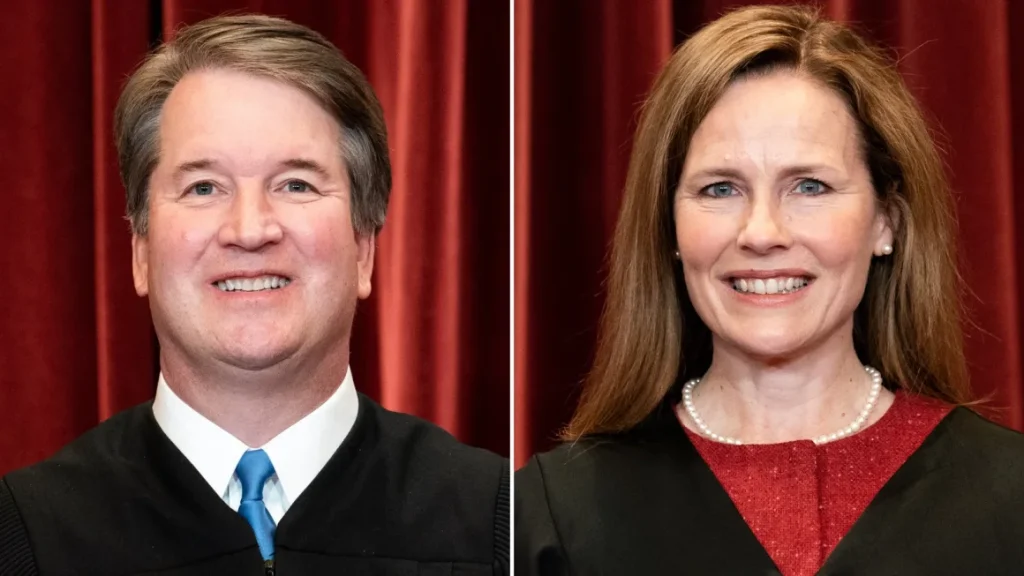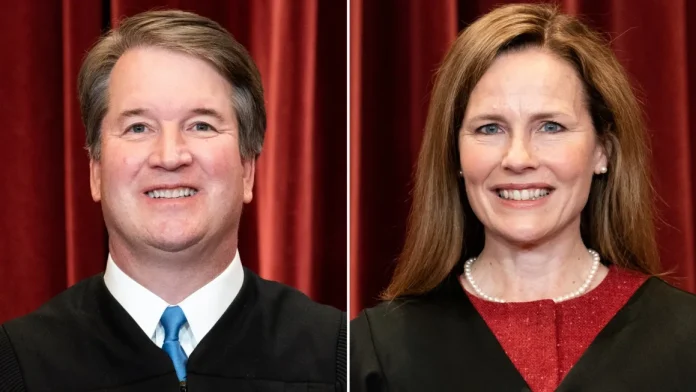
Justices Brett Kavanaugh and Amy Coney Barrett, often aligned on key issues such as abortion and reproductive rights, exhibited a shared concern during Tuesday’s oral arguments over the FDA’s regulation of the abortion pill mifepristone: the protection of doctors’ conscience rights.
Both Kavanaugh and Barrett, appointed by Donald Trump and sharing similar backgrounds and beliefs, expressed a particular interest in ensuring that no doctor is compelled against their conscience to participate in an abortion procedure.
During the proceedings, Kavanaugh’s single question and Barrett’s inquiries reflected this shared concern. Kavanaugh sought confirmation from Solicitor General Elizabeth Prelogar that federal law guarantees doctors the right to refuse participation in abortion procedures on religious or moral grounds. Prelogar affirmed this, emphasizing existing federal conscience protections.
The justices’ focus on conscience rights highlighted potential weaknesses in the arguments presented by a conservative Christian group challenging the FDA’s oversight of mifepristone. Kavanaugh and Barrett’s comments suggested that the challengers had failed to demonstrate harm caused by the FDA’s regulations, potentially lacking legal standing to bring the case forward.
As Trump appointees and pivotal figures in the conservative majority, Kavanaugh and Barrett’s stance during arguments may indicate that the final ruling will uphold the FDA’s regulations on abortion drugs. This decision, expected by June, carries significant implications for access to mifepristone and the FDA’s broader authority in drug regulation.
Tuesday’s case marked the first abortion-related dispute since the Supreme Court’s 2022 decision to overturn Roe v. Wade, a landmark ruling on abortion rights. Since then, over 20 states have implemented restrictive abortion laws, leading to increased reliance on medication abortions like mifepristone.
The central issue at hand involved claims by a conservative group, the Alliance for Hippocratic Medicine, that the FDA’s relaxed restrictions on mifepristone posed a threat to doctors’ conscience rights. However, their arguments faced scrutiny from the justices, particularly from those outside the court’s conservative bloc.
Liberal justices Elena Kagan and Ketanji Brown Jackson, along with Barrett and Kavanaugh, questioned the alignment between the alleged harm claimed by the challengers and the relief sought. Their inquiries suggested skepticism towards the challengers’ standing to bring the case forward.
Despite arguments from Erin Hawley, representing the anti-abortion doctors, Barrett underscored the distinction between participating in abortion procedures and other medical interventions. This distinction highlighted the complexity of the conscience objections raised by the challengers.
Overall, the justices’ scrutiny during oral arguments indicated a nuanced consideration of conscience rights and their intersection with FDA regulations, shaping the potential outcome of the case.























